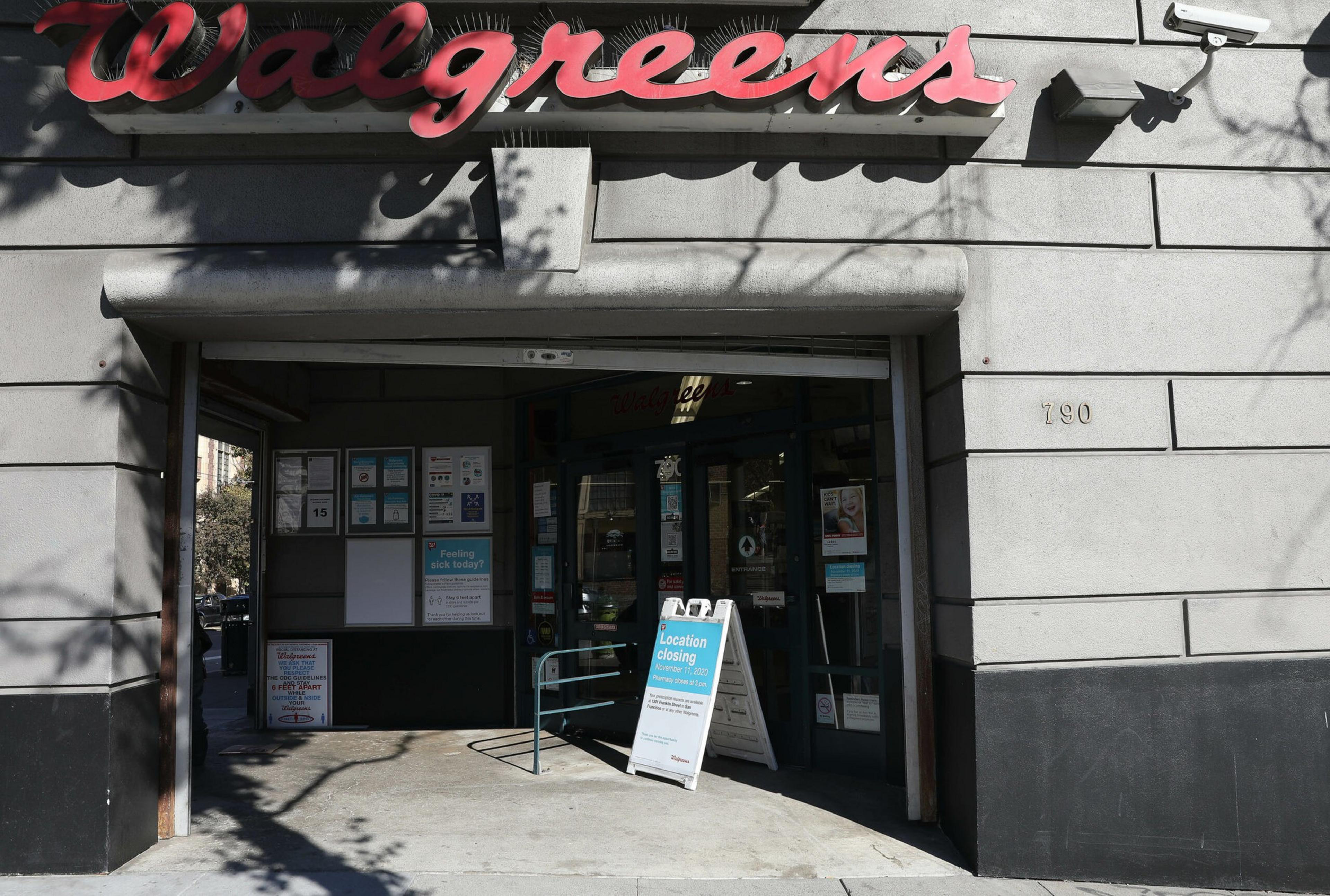Scrambling to get ahead of mounting frustration over retail crime, Mayor London Breed and SFPD chief Bill Scott on Wednesday announced a “public-private” initiative that will increase to a total of six the number of police officers assigned to investigating store thefts and dramatically improve data collection on such crimes.
The expanded retail crime unit will share data and criminal evidence more closely with retailers who are frequently targeted, such as Walgreens and Target. Some large retailers also hire off-duty officers to monitor their stores, and one SFPD lieutenant will be in charge of coordinating those privately-funded officers. Five SFPD investigators will be assigned to investigate retail crime full-time.
“Our goal is to make sure, with our plans, that we have sufficient resources to investigate and to make sure we gather the appropriate evidence for conviction of these crimes,” Scott told reporters on Wednesday.
The department will also offer more options for reporting theft—a type of crime that is believed to be widely underreported. Instead of waiting for an officer to show up in person to take a report, which can take hours for lower-priority incidents, retail workers will be able to either report them over the phone or file online through the department’s Coplogic portal. The latter option will be available in about three weeks.
Scott said that the change in reporting could trigger a dramatic increase in reports of larceny and commercial burglary.
“You’re going to see an increase with better reporting, and that’s not a bad thing,” he said, noting that many thefts go unreported because of corporate policies, an unmet monetary threshold, or a feeling of apathy that doing so won’t “make a difference.”
The department also plans to add more “community ambassadors”—unarmed, retired officers who can plug into SFPD’s radio system—in hotspots of retail theft, including Chinatown, Lower Market, Fisherman’s Wharf and Yerba Buena.
On Wednesday, Breed linked the theft to a “domino effect” of store closures, job loss, and harm to residents who rely on stores like Walgreens, CVS and Target to shop and fill prescriptions.
“There will be consequences; there has to be consequences,” said Breed. “People are feeling unsafe, it’s frustrating and we are tired of it.”
Over the past few months, viral videos of shoplifting and a smattering of store closures have elevated concerns about retail crime and its impact on workers, shoppers and the city at large.
Rafael Gutierrez, a former security guard at a Yerba Buena Target store, told Here/Say in an interview that brazen shoplifting had made work conditions dangerous for retail workers. In June, Target cut operating hours at its San Francisco stores in an effort to mitigate theft.
“Everyone’s scared, customers are scared,” Gutierrez told Here/Say in July. “I really fear that somebody is going to get hurt or killed there.”
State and local law enforcement believe that much of the city’s retail theft is tied to organized rings that buy and resell items on platforms like eBay and Amazon. A limited group of chronic shoplifters are responsible for many individual theft incidents, SFPD told the Board of Supervisors in a July letter. The department identified 116 such repeat offenders in 2020, of which 33% were arrested more than once.
In July, Governor Gavin Newsom also signed a bill, AB 331, that extended a carve-out for organized retail crime in California’s criminal code. The bill also directs the California Highway Patrol to help local law enforcement agencies in jurisdictions defined as having “elevated” levels of property crime, and encourages more cross-agency collaboration on organized retail crime.
In October 2020, a joint investigation between the California Highway Patrol, San Francisco Police, San Francisco District Attorney and the U.S. Postal Inspection Service resulted in a recovery of $8 million in stolen razor blades, cosmetics and other goods that were stolen from retail stores and resold on Amazon, eBay and elsewhere through a shell company.
